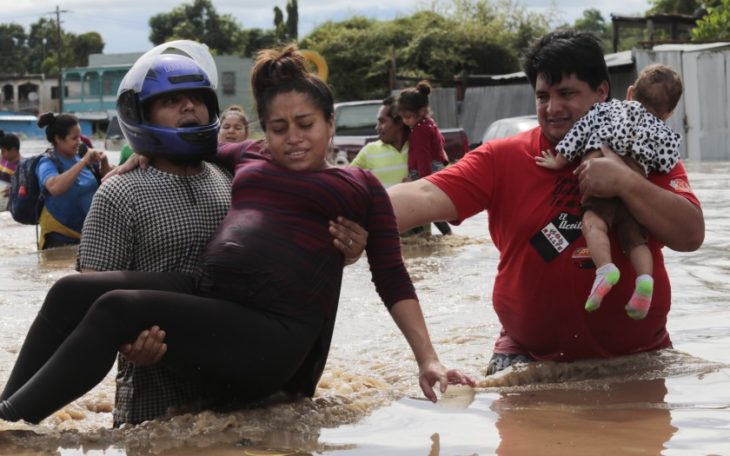The Pan American Health Organization (PAHO) is responding to the passage of Tropical Storm Eta and getting ready for Hurricane Iota in Central America, supporting the countries’ health response and operation of Mobile and Fixed Emergency Medical Teams, to ensure that people in affected areas receive medical care and to promote disease prevention.
PAHO’s country offices are working under Special Emergency Procedures and have been responding since the Eta storm was formed and alerts went out that it, along with the new storm named Iota, would affect Central America.
Iota has become a Category 5 hurricane and is forecast to bring catastrophic winds, life-threatening storm surge, and torrential rainfall to Central America, according to the US National Hurricane Center.
“We are supporting the response particularly in Honduras and Guatemala, supporting the countries in implementing risk prevention and care measures for the current circumstances,” said Dr. Leonardo Hernandez of PAHO’s Emergency Operations Center.
“Today our focus is to avoid additional risks from the impact of Eta and protect the population, health workers, and health facilities, as well as equipment and supplies. We are performing damage and needs assessments, providing technical cooperation, and finalizing proposals to donors to mobilize resources because the effects on health care services have been considerable.
Many residents have been evacuated to shelters and it’s important to maintain and enhance public health measures related to COVID-19,” he added.
In addition, three experts were deployed to Honduras to support PAHO’s office to cover emergency coordination management, emergency medical teams coordination, and emergency information and project management.
Urgently needed supplies and medicines have been sent to affected countries from PAHO’s Humanitarian Warehouse in Panama, PAHO’s Emergency Operations Center detailed. Two COVID-19 kits with more than 30,000 supplies personal protective equipment (gloves, masks, N95 respirators, gowns, goggles) enough to care for 10 intensive care patients during 30 days of hospital stay, were sent to Honduras, along with 5,000 liter water tanks, mosquito nets, 300 “dignity” kits with hygiene, protection and personal safety supplies, as well as and water and sanitation supplies.
In Honduras, Dr. Dinora Nolasco, head of the Cortez Health Region, reported that health units are completely damaged, and that more than 64 health workers were affected by the rains.
“We do not yet have the count of damage to health facilities because the water level has not dropped, when that happens, we will know how our health network is.”
For Nicaragua, PAHO also sent two COVID-19 kits of personal protective equipment, with gowns, gloves, surgical masks, respirators, goggles, and “face shields,” plus 138 emergency backpacks and 5,280 soaps.
PAHO also allocated supplies to Guatemala, including 100 emergency backpacks and 400 “dignity” kits for migrants.
PAHO’s Emergency and Disaster Management advisor for Central America, Dr. Alejandro Santander, said that “the presence of the PAHO/WHO team in the area aims to enhance the mechanisms that will be used both to capture the information that is occurring after the passage of the natural phenomenon and, for adequate decision-making in health care during and after wind damage and flooding.
It is imperative now to work with the affected populations, with decision-makers, and with the media.”
In emergencies, PAHO works with countries to strengthen the health sector’s capacities for prevention, risk reduction, preparedness, surveillance, response and
early recovery from emergencies and disasters related to any type of threat, whether natural, man-made, biological, chemical, radiological or other. (PAHO)

